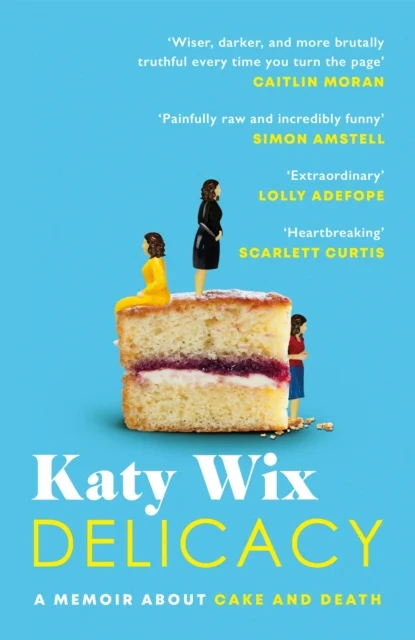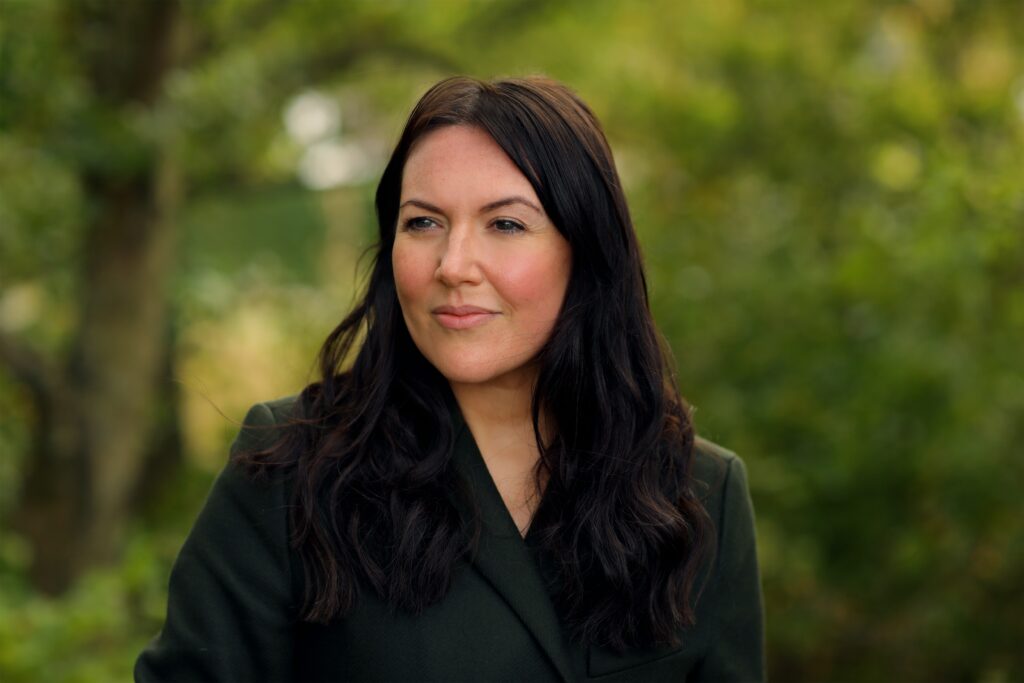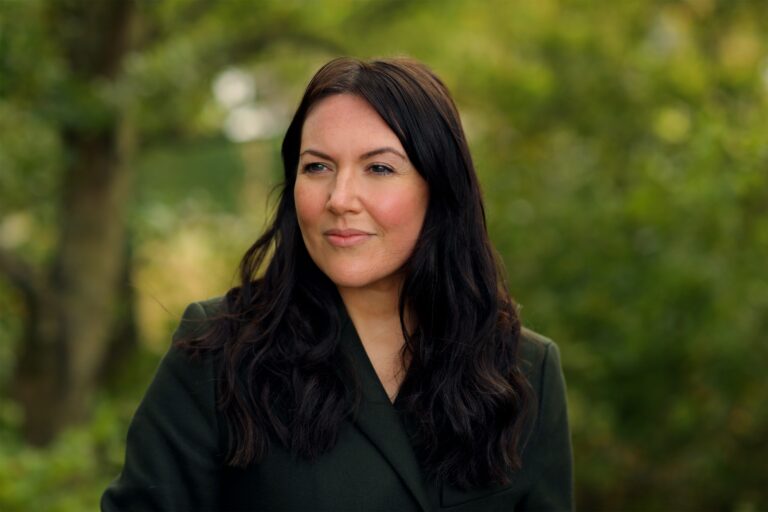Where do you write?
Normally I write at home, but I’ve just moved into an office because I’m writing a TV show, called ‘Pigeon’, for Channel 4.
There is a therapist in the office below and a writing agent across the hall, so everything is covered. I’m writing here every day, with my writing partner. It’s sparse. We’re in the process of personalising the space. So far, we’ve put up a film poster of—to quote the first words out of my mouth when Letterboxed ask for my Top 4—Jeanne Dielman, and we’ve bought three extension cords.
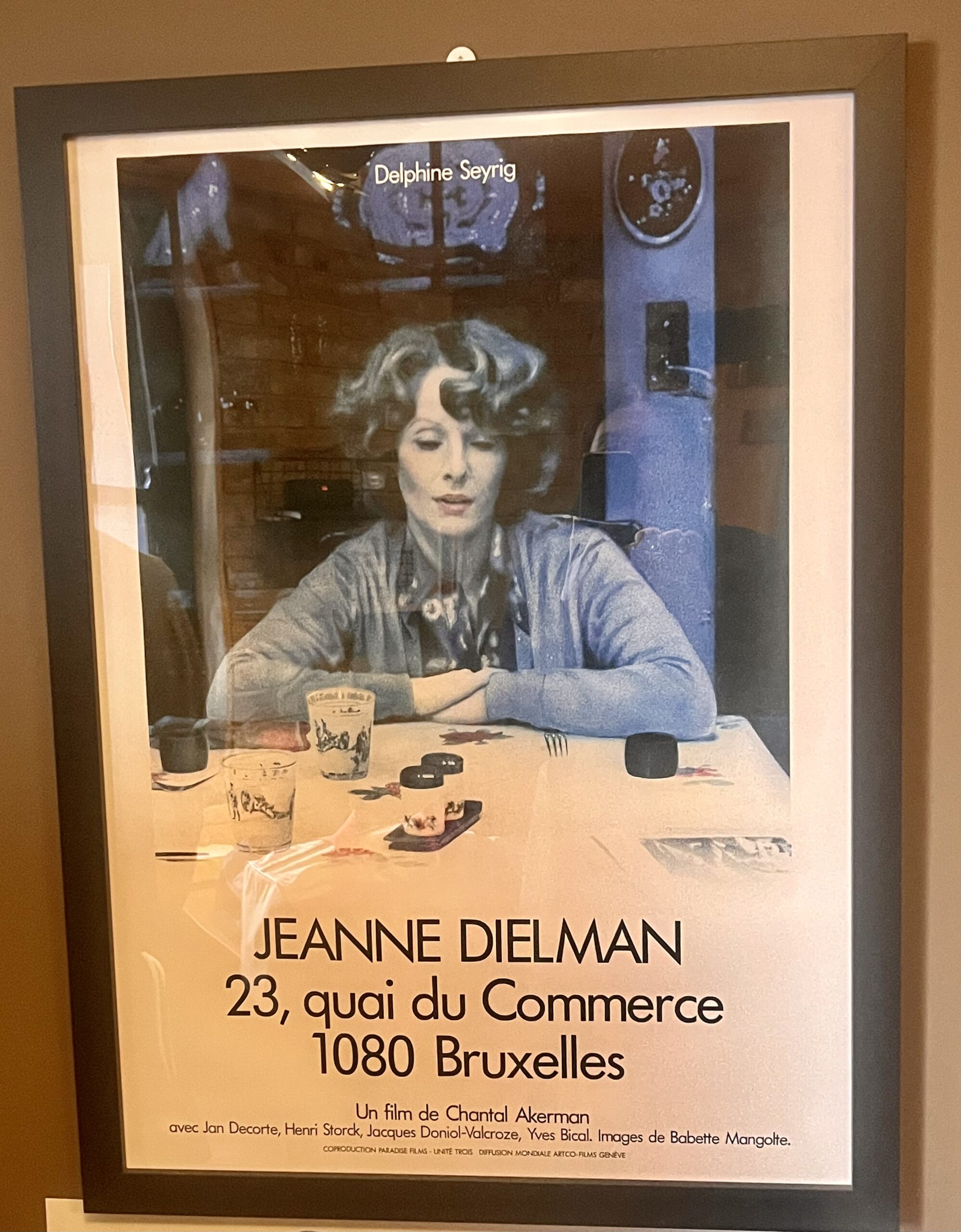
What do you have on your desk?
Several notepads and a pot of pens. I think better when I use a notepad. I buy notepads with distinctive covers, so I can picture which one holds which particular thought. There’s no real system, just a reliance on remembering the front cover when I’m trying to track something down. It’s chaos.
It’s taken me a while to find the kind of pen I like. It has to be flowy but not dribbly like a fountain pen. There’s a desk lamp, with the lowest wattage possible before I have to squint to read. A blanket, laptop, empty tea mugs, two small ceramic houses and white board markers that are too thin for the whiteboard to read from a distance. I need to return them.
Which is the most inspiring object in your workspace?
Hanging on the wall is some embroidery stretched across one of those wooden hoops. Stitched on it is my favourite quote from my favourite play, John by Annie Baker. The quote is ‘Deep calling unto deep”. The friend who embroidered it for me, used a different font for each letter, and each font relates to a font from our lives.
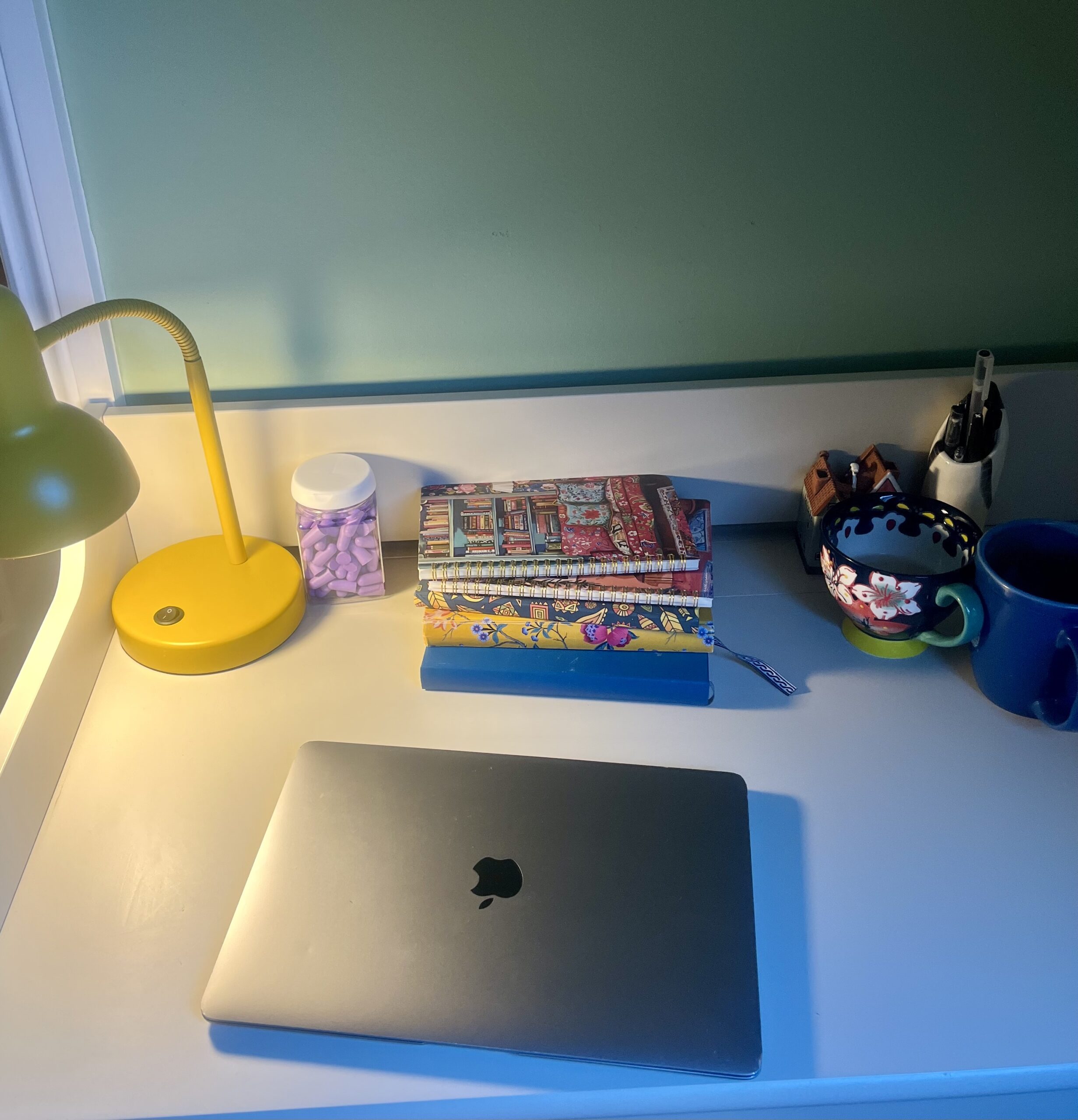
What does your writing process, from gathering ideas to finished manuscript, look like?
When I was writing my memoir Delicacy, I first spent a lot of time reading. I read mostly memoirs and confessional poetry by women. I fell in love with prose poetry, which ended up influencing the book. I was really drawn to making something that was formally exciting and expressionistic. I made notes, for about a year, of any jokes and new memories that I wanted to incorporate. I approached each chapter a bit like a painting, in that it was just layering and layering of ideas on top of each other, and then shaping into a story at the end.
What can you see from your window?
Out of the window is the back of a theatre and some workmen and some pigeons.
Have you ever had a particularly good piece of writing advice?
My English teacher in school made me feel stupid, so I didn’t really take myself seriously as a writer for a long time and didn’t have much self-belief. At first, I wrote defensively, trying too hard to sound clever, as if I were still trying to impress some imaginary authority figure in my head. My writing partner taught me ‘don’t reach’ which made me a much better writer because I was then focused on honesty, specificity and clarity. I learned it was about using the best word for what I’m trying to say, not the longest or cleverest word.
That, and to develop my own taste.
And rigour. To quote my favourite writer, Annie Baker, quoting her favourite novel, The Magic Mountain: “Only thoroughness can be truly entertaining’.
